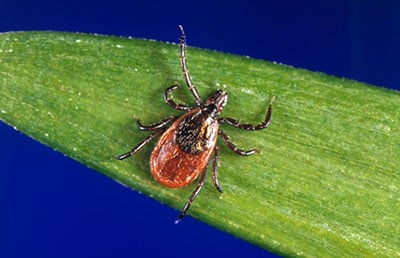Powassan (POW) virus is transmitted to humans by infected ticks. If you think you or a family member may have POW virus disease, it is important to consult your healthcare provider. Approximately 75 cases of POW virus disease were reported in the United States over the past 10 years. There is no specific treatment, but people with severe POW virus illnesses often need to be hospitalized to receive respiratory support, intravenous fluids, or medications to reduce swelling in the brain. You can reduce your risk of being infected with POW virus by using tick repellents, wearing long sleeves and pants, avoiding bushy and wooded areas, and doing thorough tick checks after spending time outdoors.

Blacklegged ticks from northwestern Ontario are being screened for the Powassan virus, which is even more serious than Lyme disease. Since the virus was first identified in 1958 in Powassan, Ontario, sporadic human cases have been reported in Ontario, Quebec and New Brunswick. Deacon believes the spread of the Powassan virus shows why it's likely that alterations in the climate will lead to the spread of this and other diseases in the northwest in the years to come. THUNDER BAY -- Growing concern in the United States about a tick-borne disease that is more serious than Lyme disease has Ontario and Canadian health agencies on the lookout for the Powassan virus. Deacon said that so far, no positive test results for the virus have been returned from ticks collected in the Thunder Bay region.
collected by :Sandra Alex
To follow all the new news about






No comments:
Post a Comment